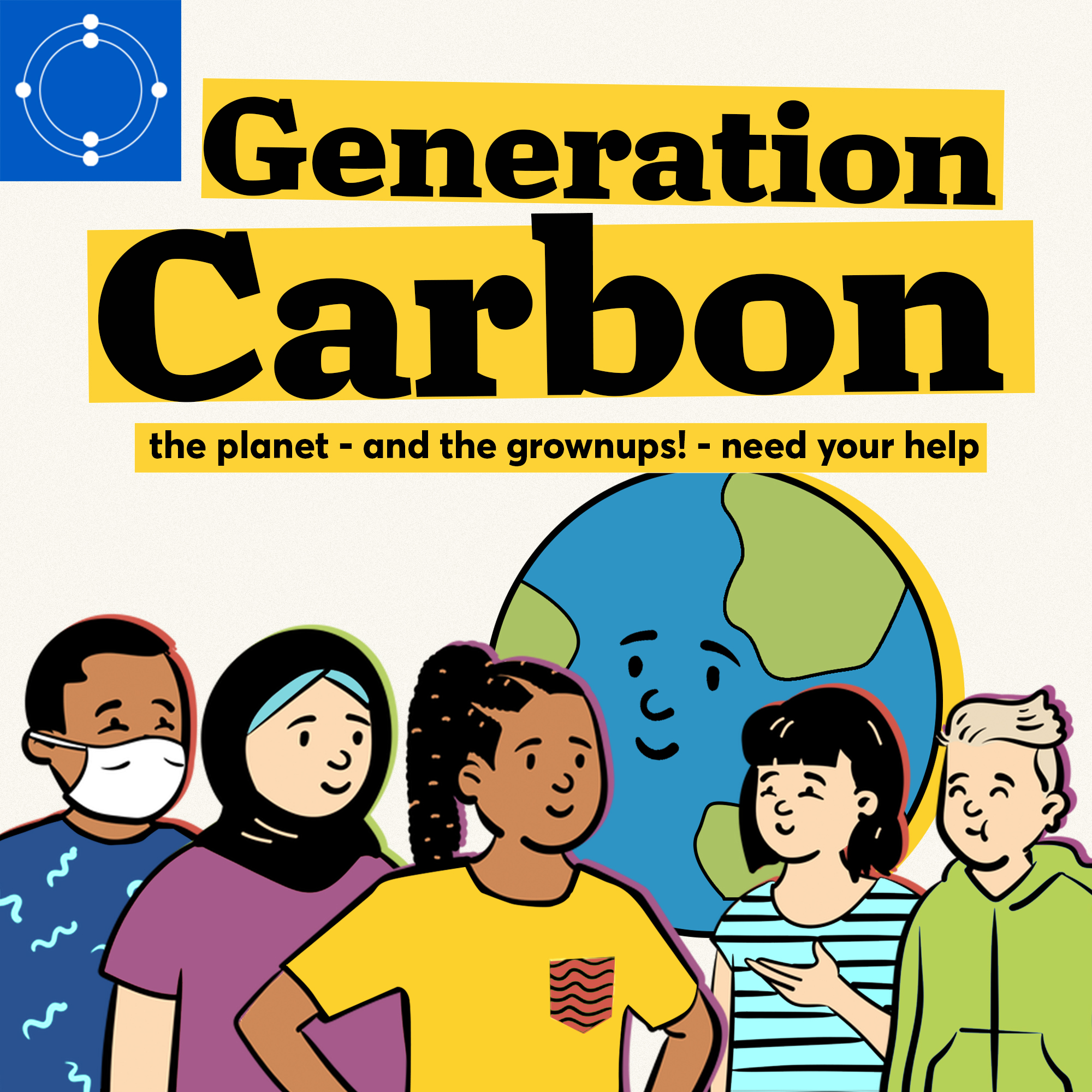Why is there is so much plastic in the ocean? How did it get there?
Hey Gen C Changemakers. This is Generation Carbon. The podcast where kids like you, help grownups like us, save the planet.
We know you have tough questions about climate change, and we believe you deserve the answers!
In this episode of Generation Carbon, we are learning about the plastics found in the ocean. What does this mean for marine life? Are they adapting? Who put the plastic there and why would they?
Our Science Spark today comes from Matilde, our Gen C Changemakers in Bologna, Italy! We hear what’s going on firsthand from Grouper Grayson, Octo-Parker, Octo-Poppy, Uncle Octopus, Professor Walrus and Scuba Edie. Learn more from Nathan J. Robinson, Marine Biologist, Science Communicator at Wild Blue Science and Gen C Super Scientific Story Reporter Giselle in Chicago, Illinois. Léon, from Casselman Ontario, Canada shares what he thinks life in 2050 may look like in English and French.
Learn more about Ocean Plastics with Nathan J. Robinson, and Wild Blue Science on IG and Youtube.
Gen C Changemakers. We’d love you to get involved. If you’d like to ask a question or submit your super scientific findings in a future episode, we need Gen C science-minded story reporters on the climate case! Have your grownups visit Generation Carbon – A Carbon Almanac for Kids to sign up.
This podcast is a part of the Carbon Almanac Network of Podcasts.
Supervising Producer: Jennifer Myers Chua. Senior Producer: Tonya Downing. Expert Outreach Advisor: Tania Marien. Written by: Tonya Downing and Kristy Sharrow. Hosted By: Jennifer Myers Chua, Edie Chua. Talent: Grayson and Parker, Olabanji Stephen, Steve Heatherington, Jenn Swanson Editor: Jennifer Myers Chua. Project Co-ordinator: Jen Ankenmann. Shownotes: Amanda Hsiung-Blodgett

